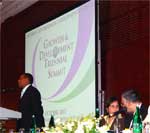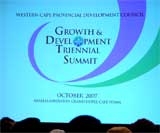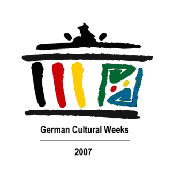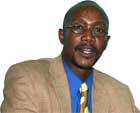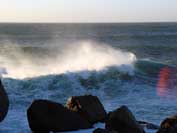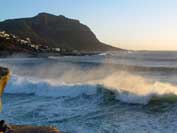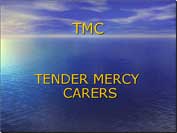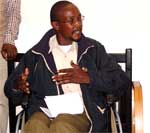From the left: MEC for Economic and Environmental Development Ms Tasneem Essop, Executive Director PDC Dr Adrian Sayers, Western Cape Premier Ebrahim Rasool, Deputy Minister Trade and Industry Dr Rob Davies, COSATU Western Cape Provincial Secretary Tony Ehrenreich, Chairperson of Organised Business Lesley Africa, Chair Civil Society Ms Leonie Caroline
The event, hosted by Premier Ebrahim Rasool, provided Social Partners with the opportunity to review and discuss:
- Progress to date regarding the implementation of the 2003 Framework Agreement signed between Civil Society, Organised Labour, Organised Business and Government in the Western Cape
- The process to attain consensus on a Provincial Growth and Development Strategy.
Here are some of the topics presented.
|
Social Dialogue, Partnerships And Shared Growth And Development
By Dr Adrian Sayers
Executive Director Provincial Development Council
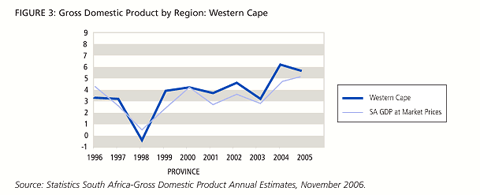
Implementation and Consolidation of the 2003 Framework Agreement for Growth and Development
- Social Dialogue and Public Participation
- The nature of Consensus Reached
- Policy Issues
- Implementation Strategies
- Monitoring and Evaluation
- Review
- Mechanisms used
Policy Issues
- Land Reform, Sustainable Development And Growth
- Land Reform
- Sustainable Development Implementation Plan
- Economic Participation, Enterprise Development And Employment Creation
- Agriculture and Agribusiness
- Aquaculture and Fishing
- Clothing Textiles, Footwear and Leather
- Metals and Engineering
- Paper and Printing
- Construction
- Furniture
- Cultural Industries
- Tourism
- Call Centres
- Information and Communication Technologies
- Film Industry
- Investment in Priority Economic Sectors
- Broad Based Black Economic Empowerment and Procurement
- Comprehensive Support for SMMEs
- Co-operatives
- The Expanded Public Works Programme
- Interventions to Prevent Enterprise Closures and Job Losses
- The Proudly South African Campaign
- The Micro-Economic Development Strategy
- Human Resource And Social Development
- Human Capital Strategy: Early Childhood Development
- Human Capital Strategy: Grades 1-9 years
- Human Capital Strategy: Adult Basic Education and Training
- Human Capital Strategy: Further Education and Training
- Human Capital Strategy: Learnerships and RPL
- Human Capital Strategy: Higher Education
- The Learning Cape Initiative
- The Poverty Reduction Strategy
- Health Strategy
- Safety and Security
- Social Capital Strategy

|
How Do We Measure The Success Of Social Dialgue?
By Lesley Africa
Chairperson of Organised Business
The honourable Premier, MEC’s, Mayors, DG’s, diplomatic corps, guests, all protocol observed, good morning, goeie more, asalam aliekum, molweni nonke, dumela, heita ra, to you under a certain age, hey dudes wuzz-up and to my close friends, hosh salute ouens en franse.
Ndingu Lesley Africa and I am honoured to address you as the Chairperson of the Business Constituency, a social partner in the PDC.
Three years ago the social partners gathered in this manner expressing their commitment to the growth and development of the Western Cape. From that day they have worked tirelessly in an effort to achieve our goals as set out in the Framework Agreement. Much ground has been covered and the foundations laid to make the Western Cape a “Home for all” in line with the Premier’s vision.
The pertinent question is “ How do we measure the success of social dialogue?” Do we measure its success only by the numbers of agreements we reached, or do we measure it in terms of the nature, scope and depth of relationships that has been forged between social partners? The partners within the PDC have been historically separated and this process offered social partners the opportunity to collectively discuss issues that are not only informed by the PDC’s agenda, but also the broader developmental trajectory that we want the Western Cape to be on.
I would like to highlight three issues that stand out for me in this three years of deliberation;
- firstly - the challenges and importance of this dialogue, relating to the notion that people are the architects of their own future and destiny
- secondly – the voice of the voiceless majority and
- thirdly, now that we have talked the walk, we need to walk the talk towards sustainable growth and development, especially 2010 and beyond, addressing the challenges facing organized business..
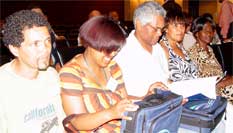
Deligates from the
Hout Bay Business Opportunity Forum
l.t.r.: Mario Jacobs, Jacky Gilfellow, Christopher Frechas, Merle Frechas, Maria Ngetu
|
For Organised Business one of the biggest challenge was not only to engage in meaningful deliberations with the other social partners, but also to open up the discussion within our own constituency. Let me briefly explain who the 4 social partners are, although I believe all of you know who they are. Within the PDC we have Organised Business, Organised Labour, Civil Society and Government as the main role players. A great achievement for me was the fact that the PDC could create a platform where these 4 partners could sit around a table, engage each other in Specialist Committees and could reach consensus on a number of issues. Although there are still areas of difference and where it will take some more discussions to reach consensus, the mere fact that we could engage each other, is in my view a great achievement.

|
COSATU PDC Summit Concerns
By Tony Ehrenreich
COSATU Western Cape Provincial Secretary
Please receive correspondence from our offices regarding the Summit of the Provincial Development Council. We are as COSATU incredibly concerned that we have not put in place 1 job or policy measure that would defend poor communities.
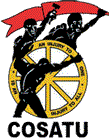
Congress Of South African Trade Unions |
The credibility issue is brought into question by the way that the government appoints the members of the Council, effectively deciding for us who should represent us. This is entirely undemocratic and against the principles of participatory democracy in South Africa, these representatives have no credibility and neither do they participate diligently. The constituencies are also sadly underrepresented with civil society really only being a group of NGO. We need to address this issue as a matter of urgency if we are to make progress on the structure and legitimacy.
The substantive areas of the engagement have also been inadequate at best, with hospitals being reduced with no agreement amongst the social partners on the health strategy. The public transport delivery has gone from bad to worse with no agreement on basic things like a transport authority to coordinate the transport plan for the City. The fuel levy that would have a hugely inflationary impact on the poor communities in the Province has not been discussed in this Forum and there are in fact very strong feelings against it. This unhappiness has seen COSATU file a section 77 against the provincial government and the process started that could see us going on strike in the Province against government policy, so if there no progress in the PDC we use NEDLAC.
The lack of coordination between the city and the province on issues like the housing has seen our fears realised of the province talking about a home for all but effectively saying no poor people in the back yards of the elite. This perception is reinforced by the province not wanting to agree that poor community housing should be built in Constantia on government owned land. We will say the nice things in the summit to keep the illusion of social dialogue whilst we appeal to the president to fix the problems that we have pointed out, but we did think we should let people quietly know that present PDC processes are wholly inadequate. The venue that we are in today is a reflection of the fact that there is more show than go in respect of identifying with poor people, a 5 star hotel to talk about poverty. We however have to keep engaging in all forums to advance the plight of our people in spite of the challenges in the politics. This engagement should curtail the unilateralism of Government who at a variety of levels have acted in the interest of the wealthy.
|
|

Presents
CAPE FILM IMBIZO
|
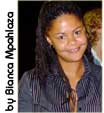 |
|
The Cape Film Commission is the official representative of the City of Cape Town and the Western Cape Province for the economic development, marketing and promotion of the region’s film industry. The Cape Film Commission combines the film-related interests of the City of Cape Town and the Provincial Government of the Western Cape under an independent autonomous organization. The Cape Film Commission’s main objective is to position both the City and the Province as a globally competitive film region, thereby boosting tourism, job creation and the development of core skills.
It is on this economic development premise that the Cape Film Commission in collaboration with various industry, government and other key stakeholders are launching “The Cape Film Imbizo 2007” to run from the 07th to the 09th of November 2007 at various venues in Camps Bay. Fundamentally the aim of this Imbizo is to strategically align and comprehensively integrate efforts of the various key industry players and promote interactive dialogue to advance the production of film in the region.
The Cape Film Imbizo will kick off with a New Media conference called Reshaping Media in partnership with Platypus Productions. This conference aims to unpack and bring together thought leaders and decision makers in the fields of Advertising and Broadcasting, to examine the latest developments and challenges facing advertising and media agencies in a modern and over communicated digital world where consumers have become over empowered. Jeremy Allaire founder and Chief Executive of Brightcove has been quoted as saying “Reach consumers where they are, not where you want them to be”. Local and International speakers will deliver various presentations on issues ranging from Marketing Opportunities (social networking and user generated content), Branded Entertainment (the brand, the agency, the broadcaster and the producer) and Mobile Content and Mobile Marketing ................
|
|
|
German Cultural Weeks 2007 in the Cape region |
 |
 Thomas Schoppa Thomas Schoppa
Cultural Attaché
German Consulate General
19th Floor, Safmarine House
22 Riebeek Street
Cape Town
8001
|
In the tradition of recent years the German Consulate General in Cape Town is hosting German Cultural Weeks in the Cape region, again, this year.
Due to the success over the past few years the German Foreign Office decided to support our efforts with a substantial subsidy in order to enable us to organise a number of bigger events throughout the 3 Cape Provinces in 2007.
Starting in April Capetonians could listen to a fascinating concert of the multinational Jazz group “Trio Ivoire” at the Centre for the Book, followed by various performances of the “Tri-buehne”-theatre ensemble from Stuttgart in collaboration with the Teatro Avenida from Maputo/Mocambique at the Klein Libertas Theatre in May.
In July the Jazz ensemble “SOKO” from Hanover/Lower Saxony extended their stay in the Eastern Cape province after taking part in the Grahamstown National Arts Festival to give 2 acclaimed performances in Nelson Mandela’s home town of Qunu and East London.
During the course of the months of October and November the main part of the Cultural Weeks has taken and will still take place.
2007 Film Festivals in Cape Town!
From 5th to 14th October we organized a German Film Festival at the LABIA Cinema on Orange Street with an array of films from comedies by well-known German director Doris Doerrie to more history-related productions like “The 9th Day” by Volker Schloendorff or “The Unknown Soldier” by Dr. Michael Verhoeven.
The highlights of the Film Festival, though, were 2 films that premiered internationally during said Festival. One of these films was "Against the Grain - With a kind of Poetry - The Film Legend Bernhard Wicki" - a documentary film about the life of the famous late German artist Bernhard Wicki (director of the well-known German Anti-War film "The Bridge"). The film was produced by Bernhard Wicki's wife, Ms Elisabeth Wicki-Endriss, who was present throughout the whole Film Festival for talks and discussions.

Film Director
Stefanie Sycholt
|
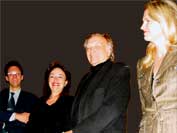
German Cultural Attaché Thomas Schoppa with actors Mo Schwarz, Dieter Kirchkechner and film director Stefanie Sycholt
|
The second film was called "Gwendolyn" - a feature film about a German family whose life is in turmoil after the arrival of their Namibian grandmother. She - as they have to find out - is dying and wants to sort various matters out with her daughter before. The film’s producer, Stefanie Sycholt – well-known for her first feature film MALUNDE, for which she received numerous prestigious South African awards in the year 2001 – as well as 2 of the actors, Ms Mo Schwarz and Mr Dieter Kirchlechner, were also available during the Film Festival for discussions.
Then, from 18th to 20th October, young German pianist Andreas Kern, gave various performances, among others, in cooperation with famous author Lutz van Dijk and Amici String Quartet at different venues throughout Cape Town.
|
German Consulate General
P.O. Box 4273
Cape Town 8000
Tel.: +27 (0)21 405-3000
Fax: +27 (0)21 421-0400
www.kapstadt.diplo.de
|
Business hours:
Monday through Friday 9h00 to 12h00
Top
|
|
| Is Tourism Really Opening Doors For Women? |
 |
Reflections Of World Tourism Day
The development of women’s role not only gives society balance, but it strengthens economic and social structures. The challenges now revolve around issues like ensuring income parity, raising employment quality, creating reasonable workplace conditions and penetrating glass ceilings – issues which are relevant generally to Millennium Development Goal 3 and gender equality.
Writes: Edwin Sipho Rihlamvu
“Tourism opens doors for women”! This theme for the United Nations World Tourism Day on 27 September highlights an issue of fundamental importance for our future. Tourism is a sector of the economy that should not only employ a significant number of women but the industry that must provide enormous opportunities for their advancement.
Perhaps what we need to interrogate more profoundly is the level and mechanisms that we employ to creating opportunities that are available for women to be absorbed into the tourism mainstream. This challenge does not only rest with policy makers but is also a function of breeding fertile ground for networking among women themselves.
Women hold jobs across the employment spectrum from artisan or guide to CEO and Chairperson of a board – in countries of all sizes around the world. In recent years they have steadily increased their share of the workforce to hold just almost as many jobs as men, and this increase has been significant in developing countries in areas such as handicrafts and community development, which tie closely into cultural preservation – an important pull-factor for tourism. Recent research showed that in some African countries, women occupied positions such as Hotel General Manager, CEO of Tourism Institution, Airline Director and by no means Tourism Minister.
Celebrating the Launch of Tourism Month on 20 August 2007, Marthinus van Schalkwyk, Minister of Environmental Affairs and Tourism said .....
The Relevance Of Tourism To Africa
It would be imprudent of us to draw a cordon sanitaire between South Africa and the rest of Africa, and would be equally imprudent to draw a cordon sanitaire between us and the moral, psychological, political and social complexities of the continent - for it is not only South Africa that needs to be heard but it is Africa as a whole that has many tales of woe and wonder to tell.
Writes: Edwin Sipho Rihlamvu
A recent IMF report notes that South Africa accounts for 6% of sub-Saharan Africa’s population but over one third of its GDP (on a purchasing power parity basis). This is more than three times as much as Nigeria, the region’s second largest economy and almost 40 times as much as Mali. Our investments in the rest of Africa have more than doubled since 2000; - in 2004 it stood at $3.7 billion.
Unfortunately, there is a dogged mindset about South Africa – and indeed about Africa – which places many critics in a permanently pessimistic frame of mind. It crops up now and then in the media and elsewhere, though does happily seem to be on the wane.
The special report on Business in Africa by the Economist of 11 May 2007 observes that the “optimists may yet prove to be right” and speaks about “the flicker of a brighter future” for the continent. The pessimistic mindset finds it difficult if not impossible to believe that Africa can be a place of efficiency and progress. It just cannot comprehend the concept of an African century ahead, let alone one based on an African Renaissance. It assumes the worst about black leadership, whether in matters of purely private expenditure on a house or a place of well-earned eminence in the business world after generations of being shut out.
It concentrates on the corrupted rather than the corrupter, when it comes to dubious commercial relations between developing and developed states. This mindset must, in short, be eradicated. Since the start of this decade, many of Africa’s economies have grown faster and more consistently.
One reason is rapidly increasing demand for Africa’s exports. Another is generally better governance. Investors are taking a fresh look at many African countries. However, at least 300 million Africans are still very poor, and Africa will need to grow a lot faster and sustain that growth. There is much work to be done.
Businesses which trade throughout Africa every day tend to .....
|
|
|
|
 No. 022-01
No. 022-01
|
To All Tourism Related Business in
Hout Bay and Llandudno:
Tourism Indaba
INVITATION
You are cordially invited (one representative of your business) to a Tourism Indaba be held at the offices of the Hout Bay Business Opportunity Forum (HBBOF). The event is organised by the City of Cape Town, Tourism Department in collaboration with the HBBOF.
The purpose of the Indaba is to lay the foundation for the establishment of an organised Community & Business Tourism Forum within Hout Bay.
| Date: |
Wednesday
31 October 2007 |
| Venue: |
HBBOF
(Old Hout Bay Yacht Club) |
| Time: |
15H00 - 16H30 |
You are therefore urged to make an effort to attend this Indabe. Your attendence at this meeting is important to ensure fair representation of communities and the future success of the tourism forums.
For any further information please contact Timothy Jacobs at
021 791-1177 or
083 390-4966
Alternatively contact the City of Cape Town Tourism Department, either Tofeeq Hargey or Patrick Roman at 021 483-9436
|
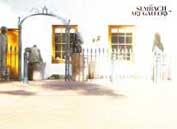 The Sembach Art Gallery
The Sembach Art Gallery
|
 UBUBELE
UBUBELE
The African Psychotherapy Resource Centre and Educational Trust
|
RE-INVENTING THE WHEEL
This is a call for HELP, so to say “re-inventing the wheel”. Edwin Rihlamvu, a wheelchair disabled, was hijacked on the highway and left there for 2 hours while surrounded by heavy early morning traffic. He is now short of a car with special alterations to be done to accomodate the wheelchair disabled.
|
|
|
|
Distribution:
Our e-News are distributed to arts & culture, the film, stills & commercial industry, wildlife, heritage, companies servicing and attracting tourism ( tourist offices, travel agents, tourist guides & tour operators) locally and abroad as well as to people who have an interest in visiting South Africa.
Published by
 To ADVERTISE in this Newsletter
To ADVERTISE in this Newsletter
 news@onsetimages.com or call 021 790-2227 news@onsetimages.com or call 021 790-2227
Alternatively send us your CONTACT INFORMATION
 |
Approved Service Provider:
Branding and Design of Business Forms |
Print Newsletter (note: set to landscape format) 
|
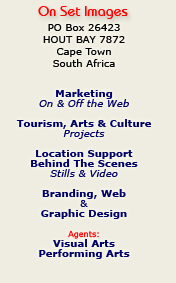
|
|










